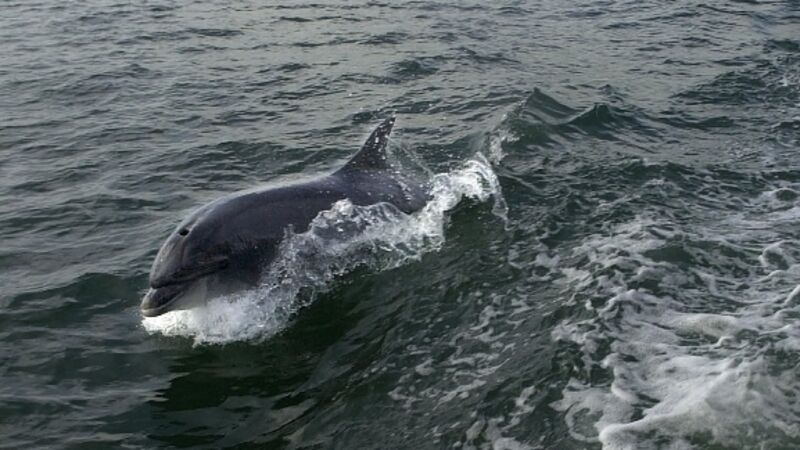Do dolphins have a built-in GPS?

His species has one of the largest brains, in proportion to body size, in the animal kingdom. Mature individuals, it’s claimed, have the intelligence of a child of six. Navigating the dark waters, dolphins use an echo-location system of mind-boggling sophistication. Now, French scientists are suggesting dolphins have another extraordinary ability; sensitivity to magnetic fields. The research is outlined in the September edition of Scientific American.
Dorothee Kremers, and a team from the University of Rennes, placed barrels in a pool at the Planète Sauvage dolphinarium in Port-Saint-Mère. One barrel contained magnetised material. Another was magnetically neutral. Six dolphins had access to the tank. The person placing the barrels in the pool did not know which was magnetised, lest he or she cue the dolphins unconsciously. The animals poked and examined both barrels, but they approached the magnetised one more quickly. Clearly, they are ‘magneto-receptive’ and it’s likely that other whale and dolphin species, perhaps all, are, too. Do sea mammals use the Earth’s magnetic field as a ‘GPS system’ to navigate?
That animals are sensitive to magnetism was first demonstrated in the 1950s, when two German researchers, Friedrich Merkel and Wolfgang Wiltschko, studied caged robins. German ones fly south in the autumn. At migration, the robins moved to the southwest end of their cage, the direction in which they would fly if they were free. However, when copper coils were placed outside the cage and an electric current passed through them, generating a magnetic field at right angles to the Earth’s, the birds changed direction immediately.
The use of magnetic fields in navigation has since been demonstrated even in non-migratory birds, such as farmyard chickens. Sharks, turtles, mice, bats, deer, and some invertebrates, exhibit magnetic sensitivity. Experiments at the University of Manchester seemed to show that some people, disoriented in darkness, were able to point in the direction of their homes. When they had magnets attached to their heads, however, they were less successful at doing so. The fields from the magnets, the researchers concluded, masked the Earth’s magnetic field. However, scientists elsewhere were unable to reproduce this result.
But how does the body detect magnetic fields? Is there a specific organ involved? There are several candidate theories. The most promising involves crystals of a substance called magnetite, an oxide of iron. Micro-biologists showed that certain marine organisms can line up and swim directionally. Magnetite was found in their bodies. Do these little creatures use it to log on to the Earth’s magnetic field?
The iron-rich substance was thought to be concentrated in the bills of birds. David Keays, and a team at Vienna University, used three-dimensional scanners to map them. The iron-rich cells, they discovered, were not concentrated in one location, but distributed throughout the tissues. Nor was the magnetite embodied in neurons, as had been supposed. Instead, it was in the white-blood cells used to fight infection; the little, iron-rich balls are accumulated from the recycling of blood. Without neurons to carry information to the brain, current theories fall apart. Scientists still believe that birds have magneto receptors; they just haven’t found them.
Magnetite is present in the brains of dolphins, but this doesn’t necessarily mean that it’s used to navigate. The field strengths of the barrels, in Kremers’ study, were many times greater than that of the Earth’s field.
More detailed studies will be needed to show that dolphins can detect the planet’s natural magnetism.
Despite their feats of intelligence and navigation, whales and dolphins still become stranded on beaches. The French research suggests that they may rely on internal magnetic compasses, at least occasionally. Could interference with these, by localised disruptions of the Earth’s field, be a factor in strandings?














